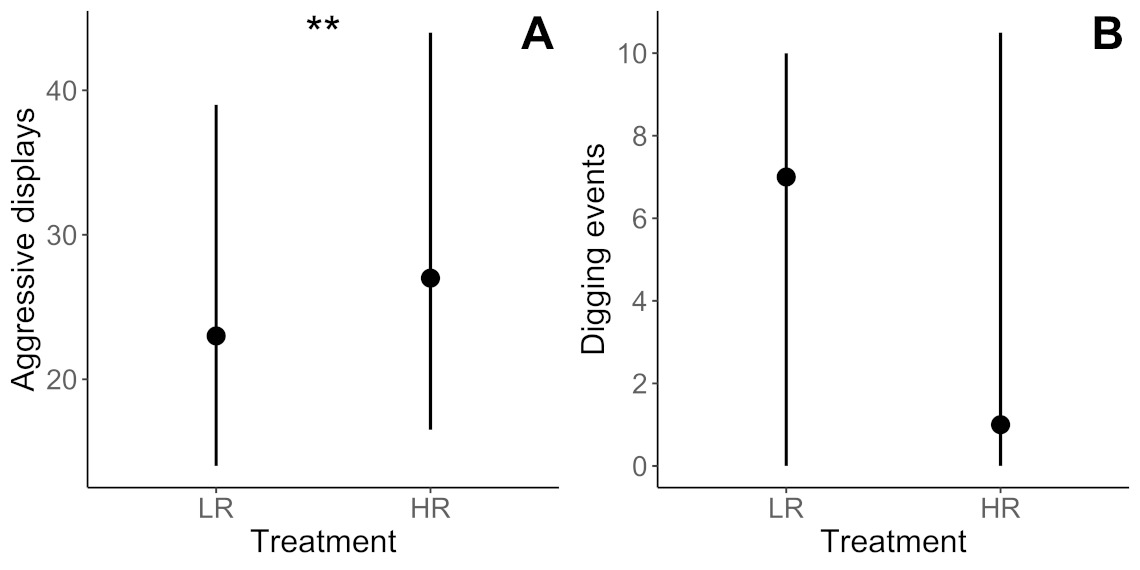Egg predator defence depends on both rank and size in a cooperatively breeding cichlid fish
Abstract
In cooperatively breeding species, helping might evolve through long-term group augmentation benefits. These can be obtained, for instance, if the helper inherits a breeding position and offspring they helped to produce, in turn, increase their survival or fecundity. Under this hypothesis, higher helping levels are expected when there is an enhanced chance for the subordinate to inherit the territory. In accordance with this prediction, in the Lake Tanganyika cichlid Neolamprologus pulcher larger helpers that are more likely to inherit the territory also invest more in alloparental care behaviours. Nevertheless, this is consistent also with the alternative hypothesis that breeders may enforce higher cooperation levels from larger subordinates due to imminent reproductive competition (pay-to-stay). Here we study whether cooperative investment depends on the rank of subordinate individuals or whether there is rank-independent, size-specific task specialization, while controlling for alternative hypotheses like kin selection and coercion. We found that high rank individuals (HR treatment) seem to defend more against an egg predator independently of size, meeting predictions of the long-term group augmentation hypothesis. However, the size of the focal also influenced significantly, with larger helpers providing less defence. No effect of rank was detected for territory maintenance.

